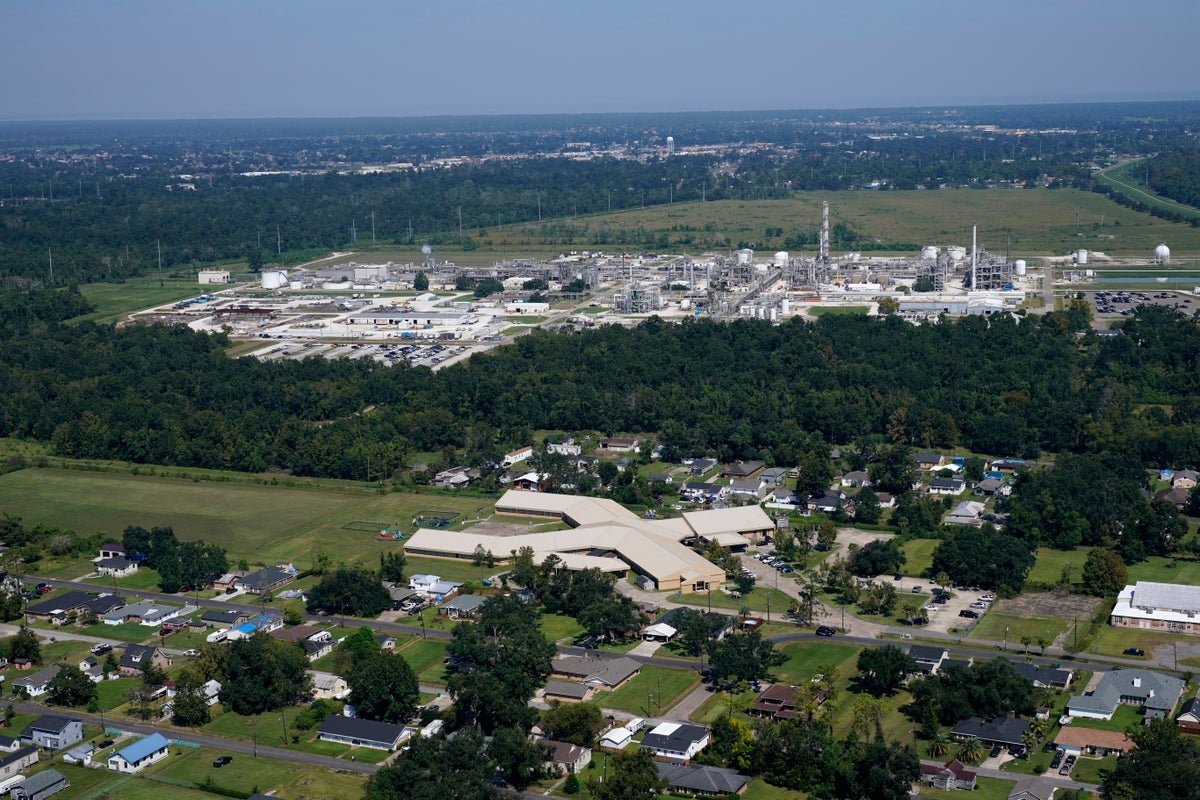
The Environmental Protection Agency conducted more on-site inspections of polluting industrial sites this year than any time since the start of the COVID-19 pandemic, the agency said Monday as it seeks to reinvigorate its enforcement program after more than a decade of budget cuts.
EPA opened nearly 200 criminal investigations this year, a 70% increase over 2022, the agency said in a report. It completed nearly 1,800 civil settlements, a 9% increase over 2022. More than half the inspections and settlements involved poor and disadvantaged communities long scarred by pollution, the agency said, reflecting the Biden administration's emphasis on environmental justice issues.
But some parts of EPA’s enforcement efforts still lag. In 2023, for example, it charged 102 defendants criminally. The Trump administration charged more every year, although most years only marginally. Nearly 200 defendants were charged in the latter years of the Obama administration. There is, however, an uptick in the number of criminal cases they’ve opened recently.
EPA said its enforcement and compliance work have resulted in the reduction, treatment, elimination or minimization of 1.84 billion pounds of pollutants, and required violators to pay over $704 million in penalties, fines, and restitution. The dollar amount is a 57% increase over 2022.
This comes even as the EPA’s enforcement staff remains far below its peak of more than a decade ago, even as officials move to add about 300 positions. The increase in staffing comes after EPA eliminated approximately 950 enforcement positions following budget cuts imposed since 2011.
The 2011 budget and debt deal, which included automatic spending cuts, "hit all agencies hard, but hit EPA especially hard,'' said David Uhlmann, EPA's assistant administrator for enforcement. Enforcement efforts were further hampered by an inability to complete many on-site inspections during the pandemic, which began nearly four years ago, and a series of actions by former President Donald Trump to roll back environmental regulations.
“While our work is not complete, EPA’s revitalized enforcement program is making a positive difference in communities across America, particularly for people living in underserved and overburdened communities that for too long have borne the brunt of pollution,'' Uhlmann said in a statement.
Uhlmann, who was confirmed as EPA's enforcement chief in July after a two-year delay, said in an interview that enforcement efforts are “still a struggle” at the environmental agency.
“We can't replace a decade of staff cuts in one year, but I feel good that enforcement levels are back up to where they were prior to the pandemic,'' he said.
“EPA has increased enforcement activities across the nation,'' he said. “Polluters who broke the law are being brought to justice.''
EPA sued Norfolk Southern railway over a train derailment in eastern Ohio that spilled hazardous chemicals and forced thousands of people to evacuate. Federal officials want to ensure the company pays for the cleanup.
The agency also sued Denka Performance Elastomer LLC, arguing that its petrochemical operations in southern Louisiana posed an unacceptable cancer risk to the mostly-Black community nearby. The EPA has demanded that the company reduce toxic emissions from its plant that makes synthetic rubber.
The Biden administration also went to court to try to help the troubled Jackson, Mississippi, water system, which suffered a near-total collapse in 2022 after a heavy rainstorm.
In May, the EPA reached a deal with a BP subsidiary that required the company to reduce harmful pollution from its refinery in Indiana. The company also agreed to pay a $40 million penalty under the Clean Air Act.
The agency has set climate change and environmental justice as top priorities for enforcement, along with dangerous chemicals known as PFAS that are linked to a broad range of health issues, coal ash contamination, safe drinking water, prevention of toxic air pollution and chemical accident prevention, Uhlmann said.
Uhlmann, a longtime environmental law professor at the University of Michigan Law School, declined to give a letter grade to the agency’s overall efforts. But given budget constraints and other issues, his staff was “hitting it out of the park″ over the past year, he said.
Democrats and environmental groups blasted the Trump administration’s enforcement efforts, especially during COVID-19, with one senator saying a “pandemic of pollution’’ had been released.
The EPA under Trump weakened regulations dealing with fuel efficiency and mercury emissions and waived enforcement on a range of public health and environmental mandates, saying industries could have trouble complying with them during the pandemic. The rollbacks were among dozens of actions by the EPA to ease requirements on industry to monitor, report and reduce toxic pollutants, heavy metals and climate-damaging fossil fuel emissions.
EPA said it has obtained approximately $1.1 billion from so-called Superfund cleanup and cost recovery settlement agreements. This brings the total value of Superfund enforcement actions to $50 billion since the program began in 1980. More than 3,900 Superfund sites have been identified across the country.







